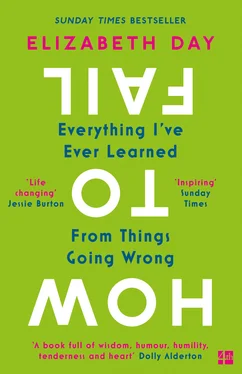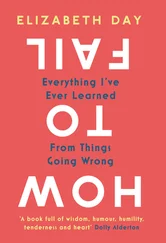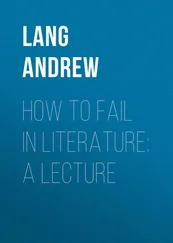Hendricks found her tribe in the drama department. Acting provided an outlet for a feeling of impotent rage. She became a goth, dyeing her hair black and purple, shaving it at the back and wearing leather jackets and knee-high Doc Marten boots. She said her clothes, and her capacity for reinvention, provided a type of armour against what she was experiencing.
‘My parents would say, “You’re just alienating everyone. You’ll never make any friends looking like that.” And I would say, “I don’t want those people to be my friends. I’m never going to be friends with the people who beat up a kid while everyone is cheering them on. I hate them.”’
Of course, we know now how the story turned out: Hendricks’ passion for drama turned into a successful career, winning her critical plaudits, Emmy nominations and the slavering admiration of a legion of borderline-obsessive fans.
That, it seems, is what connects all these stories: the lesson that, in order to survive, one needs either to adapt to a potentially hostile environment or to redirect one’s pain into a more positive – and often creative – outlet. It strikes me that school is not simply a place where academic lessons are taught but also a place where we educate ourselves on who we are; where we can try out different identities and see what fits before the constraints and responsibilities of adulthood are upon us.
I was always so frustrated as a teenager when condescending grown-ups would tell me that schooldays were the best days of my life and that I should ‘make the most of them while you can’. At the time, I wondered whether it was one of those things I might grow into believing, in the same way as I grew into French cinema and liking pesto, but I never have. Schooldays were categorically not the best days of my life and, in fact, I still have nightmares about them.
On the podcast, Phoebe Waller-Bridge, creator of the Bafta-winning Fleabag , spoke about the ‘duality’ she felt at school. At home she had been raised to be strong-minded and to test unnecessary boundaries and yet she was entering a place where rules had to be obeyed.
‘I remember my mum saying to me when I first went to secondary school, “Just be an angel for the first three terms, if you are an angel for the first three terms, you’ll get away with anything you want for the rest of your school career,”’ Waller-Bridge said. ‘And I really took that to heart and I made sure that I worked hard, I got the little badges or whatever you got, but the whole time [I was] just basically saying to my mates, “If I nail this then I can take anyone down later.”
‘And it was so true because then I just had the reputation of being a hardworking student, and I was a massive practical joker and the cheekiness, that also my mother had bred in me, was brilliantly offset by the lesson to appear to be a good girl and you’ll get away with being a bad girl.’
Of course, it was this duality that Waller-Bridge later deployed to great effect in Fleabag where the protagonist is, to all intents and purposes, a seemingly nice, well-brought-up middle-class girl who is actually grappling with darker issues of grief and abandonment and who uses sex as distraction from having to deal with her own inadequacies. Within that premise lies a further duality because although Fleabag ultimately addresses serious themes, it is also unabashedly funny.
Failure to fit in at an early age teaches us to develop a resilience that can ultimately help us flourish. The political campaigner Gina Miller found this to be the case when she was sent from her home in Guyana to boarding school in Eastbourne at the age of eleven. She was targeted by bullies for looking different and for the way she spoke. Before leaving home, Miller had taken a bottle of her mother’s L’Air du Temps perfume with her to remind her of all the things she loved. Every night before going to sleep in her dormitory bed, Miller would dab a bit of the scent on her pillow before another girl spotted what she was doing and tipped the perfume down the toilet. When she discovered what had happened, Miller shed a few private tears before assessing her options. She could tell on the bully, which would alienate her from the other girls. She could suffer in silence, which might make her seem like a pushover. Or she could try and win the bully over.
Miller went for the last option, giving the girl in question a bracelet as a peace offering.
‘As soon as I reached out to the girl who was bullying me, her defences crumbled,’ Miller recalled. ‘I didn’t counter anger with anger. Nor did I show I was upset. Instead I tried to disarm her with kindness so that we could engage with each other. Once a bully sees you as human, that’s half the battle.’
She added: ‘All of this taught me an important lesson. It was that most bullies act from a place of weakness. They feel threatened and backed into a corner by something – or someone – they don’t understand. Bullying is the way they lash out, but underneath all that bravado, there’s often a fragile individual riven with insecurities and weakness who doesn’t know how to express him or herself when confronted by the unknown.’
It was a lesson that she took with her into adulthood, when Miller found herself the target of death threats and racist abuse after successfully taking the UK government to court in 2017 over the triggering of Article 50 to exit the European Union without parliamentary consent.
So what do we learn from failing to fit in? We learn how to cope with social rejection. We learn how to entertain ourselves. We learn independence and empathy and we put our imagination to better use than we might have done otherwise. We learn how to handle bullies and people who don’t like us. We learn strategies that help us acclimatise to new environments. We learn to code-switch between different social languages. We learn not to let our mother cut our hair beyond an appropriate point.
But my failure to fit in also had less positive effects. It made me, at an early age, into a people-pleaser. I wanted others to like me and accept me and the coping strategy I had developed to survive was predicated almost entirely on their good opinion. I wasn’t particularly selective about who liked me, I just hankered after safety in numbers which meant that for years I flailed around trying to fit in anywhere I could. It was an exhausting way to live. It meant I lost touch with a lot of what I was actually feeling and what I truly wanted, in an attempt to contort myself around other people’s desires. This became so embedded in my psyche that I didn’t even know it was happening until I turned thirty-six and realised the existential corner I had painted myself into was diametrically opposed to my long-term wellbeing, and my life imploded in spectacular fashion. I wonder how different I would have been had I adopted Christina Hendricks’ ‘fuck you’ attitude; if instead of unthinkingly going along with the herd, I had developed a strong individual identity and found refuge in difference rather than being scared by it?
Perhaps I would have had a less critical internal narrative: that judgemental voice which kept telling me I was wrong or bad or not good enough throughout my teens and twenties. But maybe that voice was also part of my drive and ambition. I was seeking to prove to myself through the frantic ticking of external boxes (degree; career; professional success) that I was all right. That I did have stuff to offer. That I was worth being friends with. That I was worth being loved.
So I don’t think, looking back, that I could have had the one without the other. I wouldn’t have the published books, the journalism awards, the joy of seeing my name in print, without a borderline-obsessive work ethic fuelled by outsidership. And maybe I wouldn’t have such a wonderful circle of dear friends had I not also acquired the certain knowledge that acceptance is a fragile and fickle thing, and isn’t to be taken for granted. That you need to look after your friendships as you would your own health.
Читать дальше












